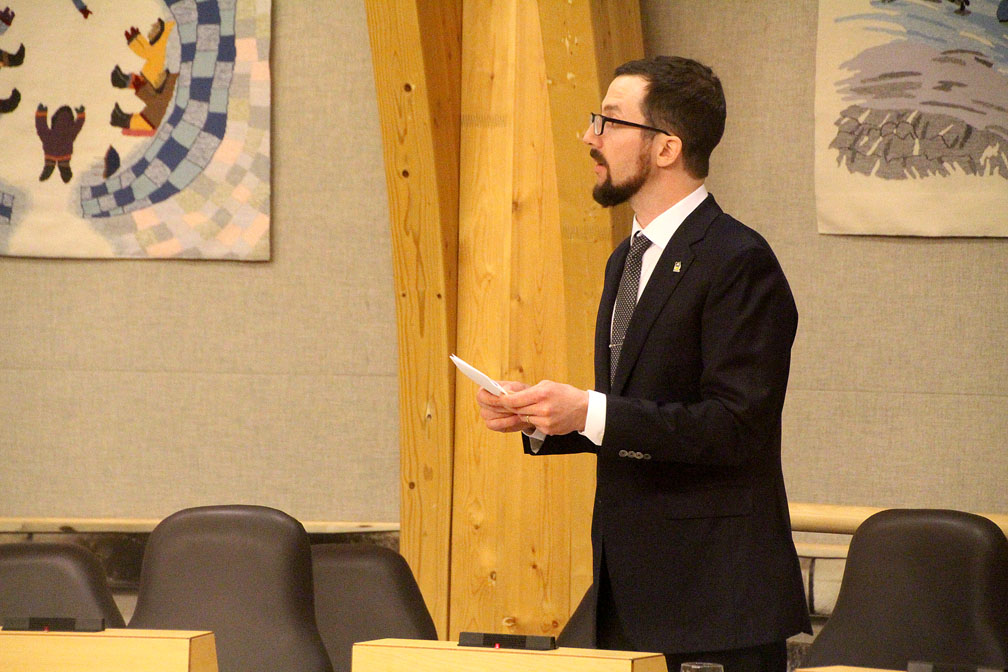Nunavut fuel rebate scheme a failure, MLA says
“I’ll try not to laugh about this”

Arviat North-Whale Cove MLA John Main quoted Government of Nunavut reports showing that since 2006, harvesters from Arviat and Whale Cove have received a total of only $53 in rebate dollars from a territorial fuel tax rebate program. (PHOTO BY BETH BROWN)
Arviat North-Whale Cove MLA John Main wants to know why the Government of Nunavut’s Department of Finance is promoting a fuel rebate program that has already been flagged as broken.
In questions asked on Tuesday, March 13, Main referred to a Feb. 27 public service announcement for the GN’s Fuel Tax Rebate Program, which allows harvesters, outfitters and tourism operators to get a rebate on the cost of gasoline or diesel used in vehicles like snowmobiles, ATVs and boat motors.
“These tax rebates are available to the harvesters and it can give a lot of support if accessed,” said Finance Minister David Akeeagok.
But Main said the program is already documented as being ineffective.
Last year, a summary report of the fuel tax rebate program for the 2014-2015 and 2015-2016 fiscal years was tabled in the legislature.
That report shows that the rebate amounts to less than 0.2 per cent of what Nunavut harvesters spend on fuel.
The report also shows that Nunavummiut aren’t applying for the rebate.
“I’ll try not to laugh about this,” Main said, quoting the report.
“For my communities, Arviat and Whale Cove, since 2006, since the program was started, in Arviat there was one application that was processed for $21.
“Whale Cove did slightly better, there was one application for $32,” he said.
In Resolute Bay, three applications filed for a fuel tax rebate in the community since 2006 total only $35.
Main also quoted the report as saying that the cost of delivering the program—processing applications, issuing cheques, recording transactions, marketing the program—likely outweighs the value the program has for Nunavummiut.
“It appears that the conclusion has already been drawn by the Department of Finance… Based on this document it doesn’t appear that this program is particularly effective for the harvesters in Nunavut,” Main said.
He also asked Akeeagok for a commitment to either overhaul the program or scrap it and create something that harvesters would benefit from.
“We have to support our hunters as a government because they feed the community as a whole,” he said.
Akeeagok noted that the volume of fuel used by harvesters can be quite low, and that might explain the low rebate figures stated in the report.
He said he is “definitely” committed to reviewing the program and to finding ways to collaborate with harvesters.
“I will look into this, whether it is effective and whether we can communicate more. This is one small component that our government provides to harvesters,” he said.
“It’s timely in this new government that we look at this and I applaud your question.”





(0) Comments